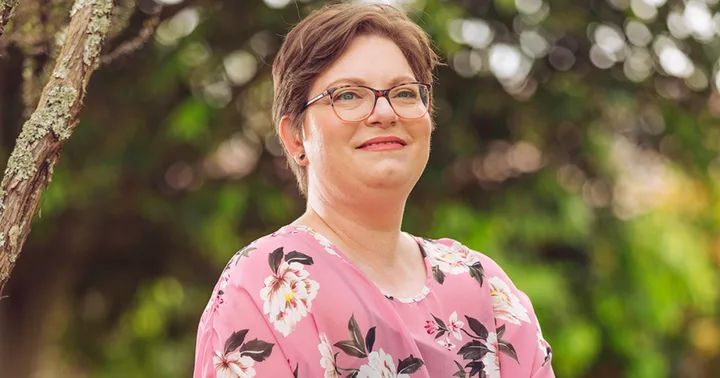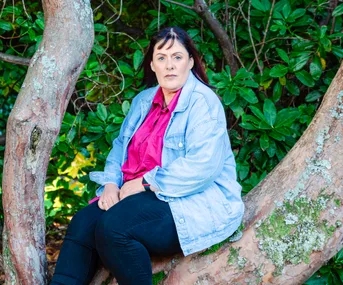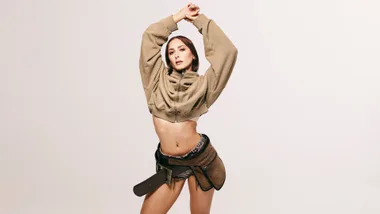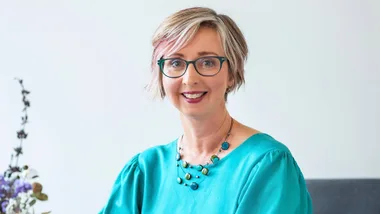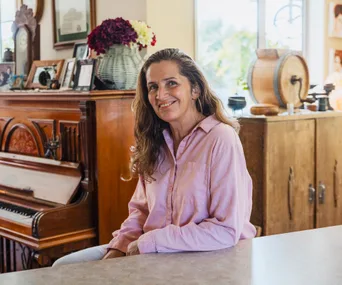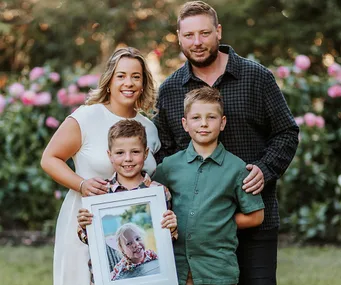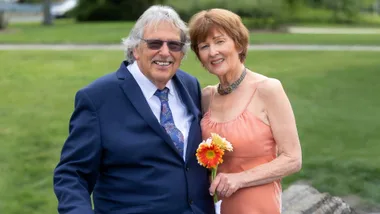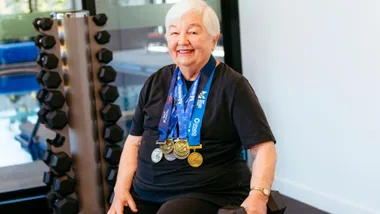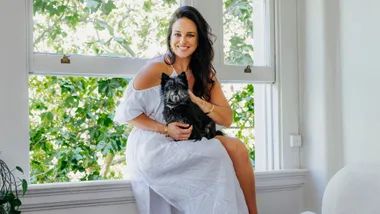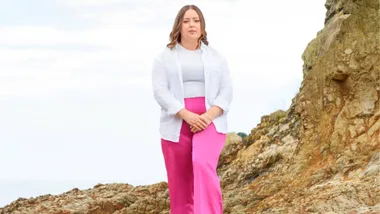Kelly Reichardt was looking through shots a photographer friend took of her in 2020 when she suddenly noticed a strange shape on her left breast. The mum-of-one peered closely at the image of herself standing side-on, observing what appeared to be “wobbly flesh”.
It turned out to be breast cancer and Kelly’s keen eye may have saved her life, but it came with a confusing twist – nine years earlier, the West Auckland woman had undergone a mastectomy to remove both her breasts.
“My friend was doing a glamour photoshoot to make women feel better about themselves and I agreed to do it, even though I’m very critical when I look at myself in photos,” recalls Kelly, 40, who had a preventative double mastectomy because she carries the BRCA2 gene mutation, which puts her at a much higher risk of getting breast and ovarian cancer.
“The average person wouldn’t notice, but I thought my breast looked weird.
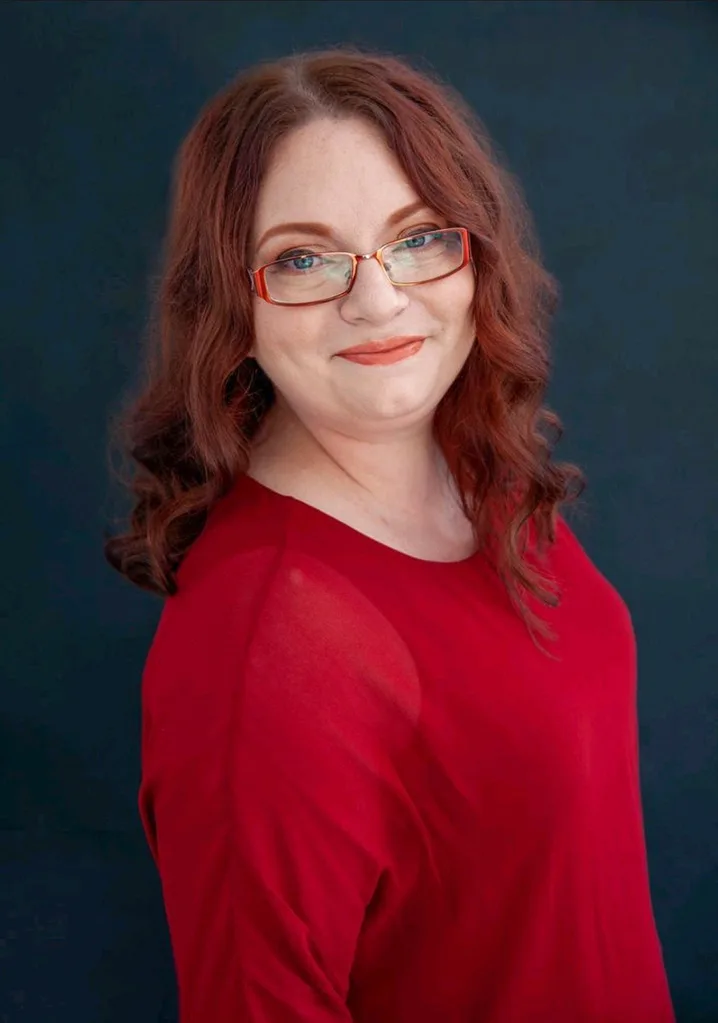
The pic that alerted Kelly to see a doctor.
Until then, Kelly didn’t think she needed to self-check since she no longer had any breast tissue left. When she felt a large, “solid but squishy” lump below her left nipple, she was shocked.
“I had a feeling in the pit of my stomach it was cancer,” tells Kelly, a solo mum to daughter Molly, 12. “That photo saved my life! I told my mum, who has been through breast cancer, then I was inconsolable the rest of the night.”
Having lost multiple family members to breast cancer, Kelly phoned her doctor the next day and was given an urgent appointment at North Shore Hospital. As she sat and waited for an ultrasound, she wondered how cancer had made its way into her life, despite her surgery in 2013.
“After my daughter was born, I decided to do genetic testing to see if I was BRCA2 positive because my mum is,” she recalls. “When it was confirmed, it was bittersweet because it sucks to have it,
but it’s also good to know. I went on a surveillance programme that meant I had mammograms and ultrasounds every six months.”
Each time, they detected fatty lumps in Kelly’s breasts that need biopsies and, after three years, she’d had enough. She asked for a preventative double mastectomy, and surgery to remove her ovaries and fallopian tubes. She kept her nipples and had breast reconstruction with implants.
“I blocked any emotions out because I knew it had to be done for my health and to be around for Molly,” says Kelly. “When I woke up from the procedure, I felt relief because I thought it was over. I went back to normal life as a stay-at-home mum.”
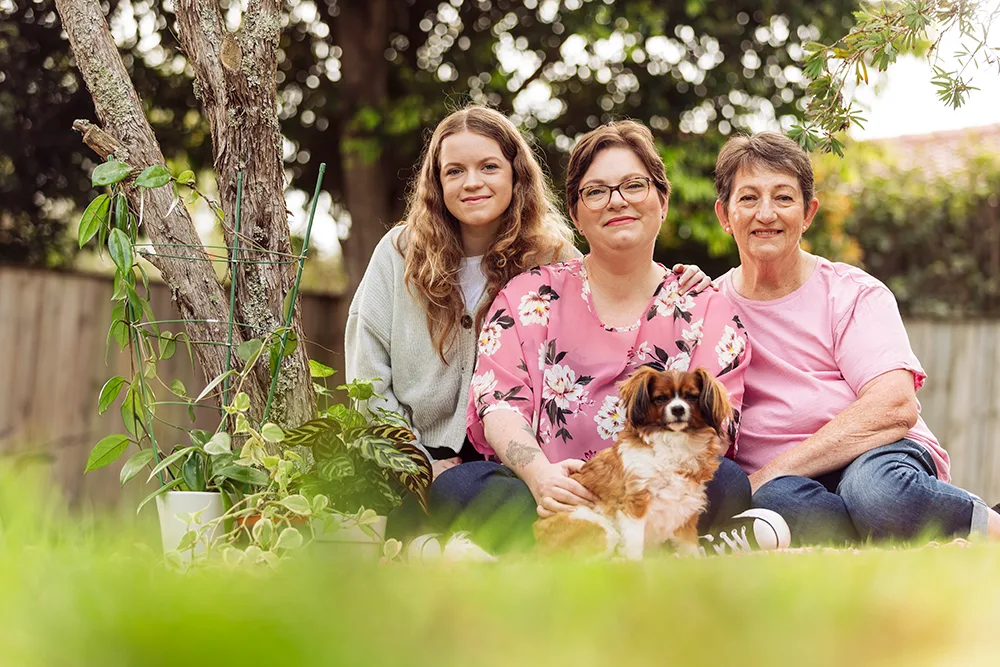
Kelly’s got the best support in daughter Molly, mum Dawn and pup Ratty.
However, two years ago, Kelly discovered she was in the 1% of people who get breast cancer after a preventative mastectomy. It turned out the cancer had grown in her nipple.
“It was devastating to be diagnosed after I’d done all this work to try to prevent it,” she says. “They’d told me it wouldn’t be an issue to keep my nipples. If I’d been given the option for them to go, I would’ve taken it.”
Because her cancer was growing fast and had already spread to her lymph nodes, Kelly needed a lumpectomy. Surgeons ended up removing more than 20 lymph nodes, including the one containing cancer, and agreed to remove her nipples.
“I had nine rounds of chemotherapy and then radiation, which was hard,” shares Kelly, who has a diploma in art and runs her own studio. “During treatment, I wrote poems and short stories, and created digital collage images.
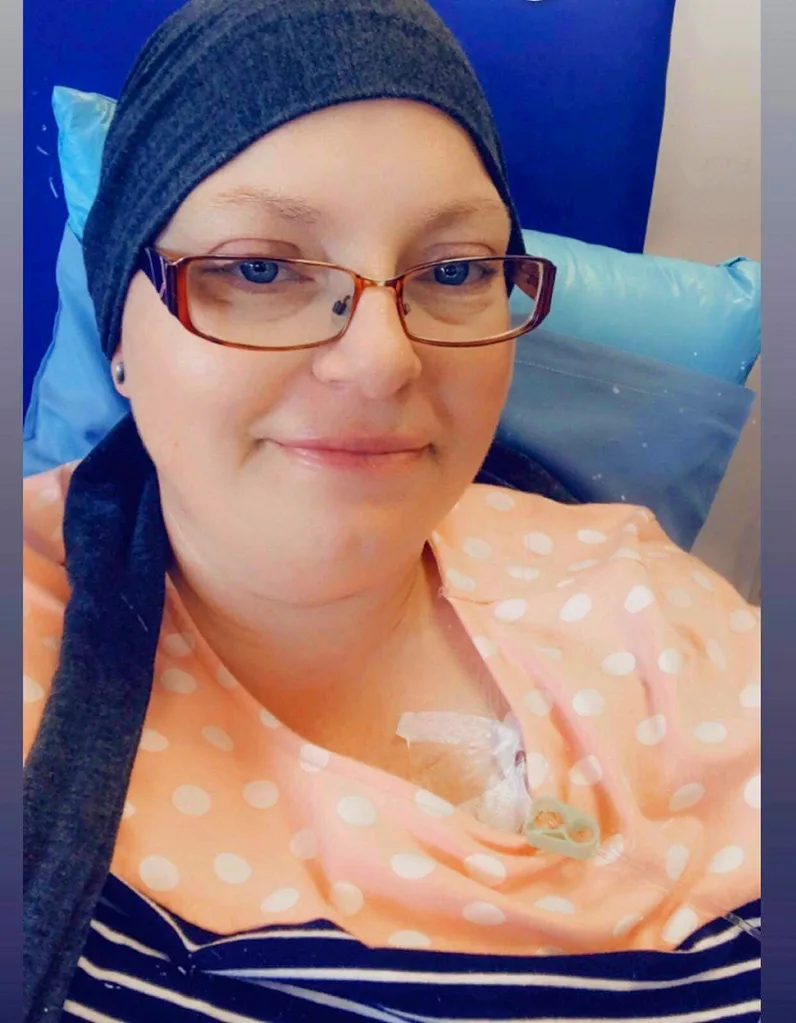
“I’ve now created a book using this material. It kind of saved me because I had all this creativity needing to come out. It was cathartic.”
When Kelly was clear of cancer, she started a 10-year hormone treatment and she now has yearly ultrasounds. She recently had surgery to remove her breast implants, which had become “rock hard”.
“I found lumps all over my right boob and kept wondering if it was more cancer, but the scans showed they were just bits of the implant gone out of place. It was like my body had had enough and was fighting them, until the right one ruptured.”
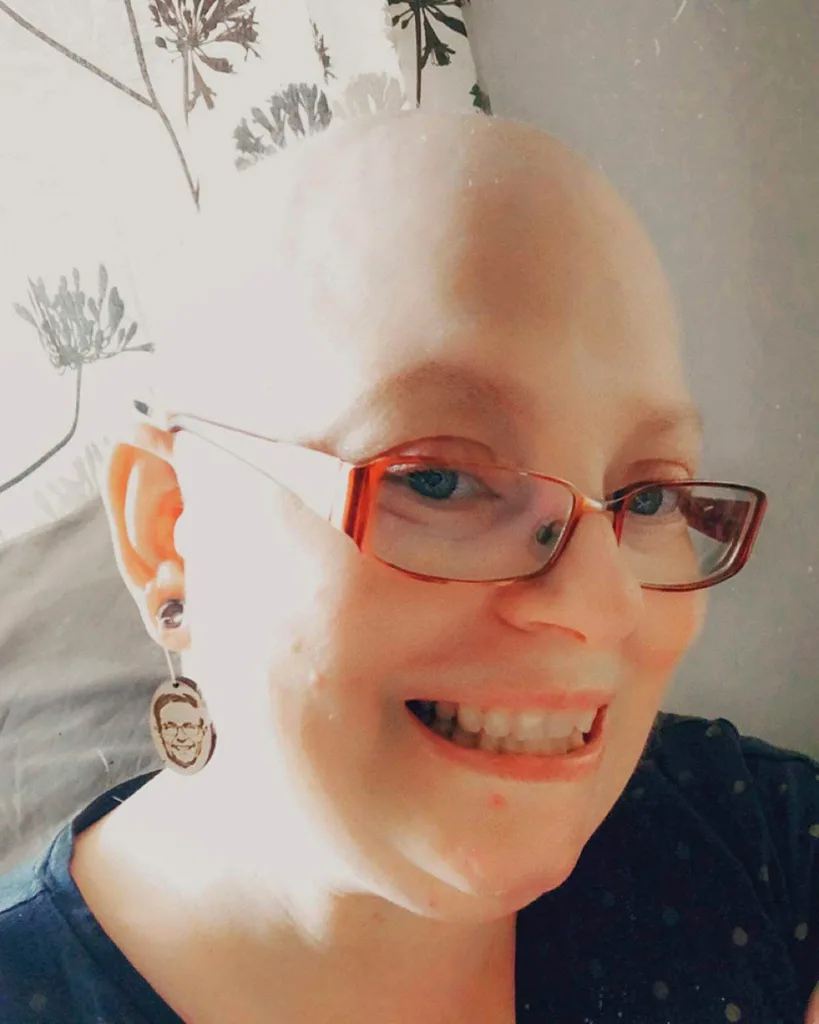
Kelly admits it’s been a long and traumatic road saying goodbye to her breasts, but she’s grateful the cancer was picked up early. She’s already started teaching her daughter about self-checking and is thrilled Molly will be able to have genetic testing for BRCA2 when she turns 18.
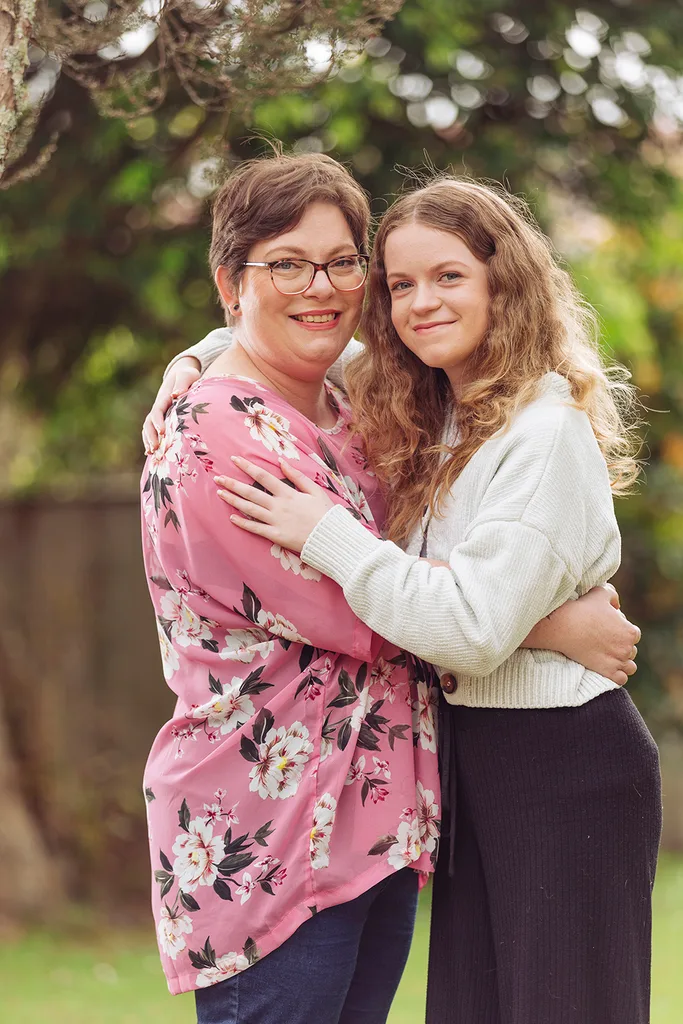
Kelly doesn’t want Molly to go through the same harrowing journey.
“It’s vital women don’t become complacent,” tells Kelly. “I was open during my cancer journey, posting online and informing people how to check their breasts. Five of my friends did it and found lumps. These days, I value my body and the beauty of life a lot more, knowing it could’ve gone far differently.”
October is Breast Cancer Awareness Month and there are loads of ways to get involved. Visit breastcancerfoundation.org.nz/bcam to see how you can make a difference.
